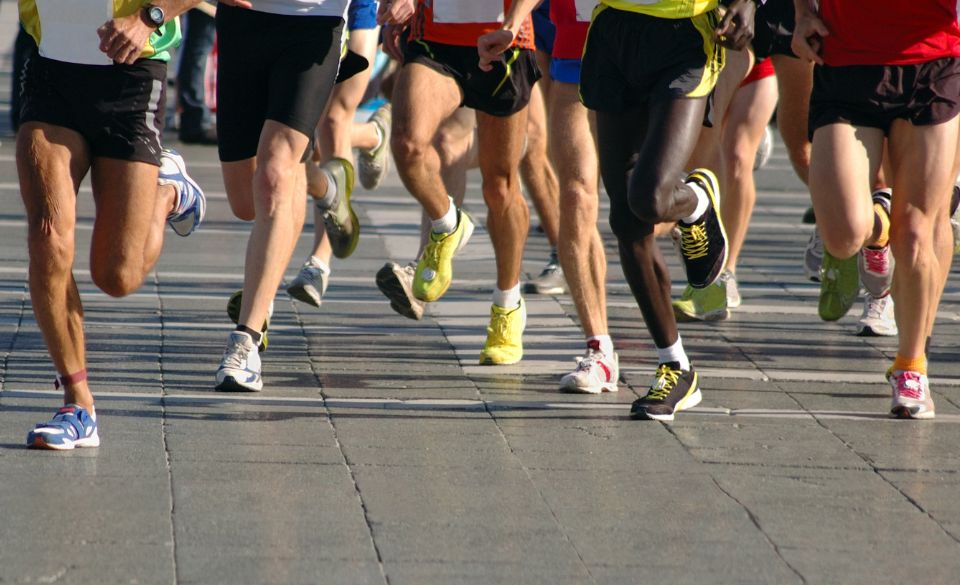
How Do professional Runners Get Paid
Page Contents
Running is one of the oldest and most popular sports in the world, and professional runners are some of the most dedicated and disciplined athletes out there. But how do these athletes make a living? In this article, we will explore the various ways that professional runners get paid and the challenges they face in the process.
Prize Money
Prize money is an essential source of income for professional runners. Many major running events offer prize money to the top finishers, with the amount varying depending on the race and level of competition. The prize money for a single race can range from a few hundred dollars to several hundred thousand dollars, depending on the prestige and level of competition of the race.
Professional runners can earn a significant amount of money by participating in and winning major races. For example, the winner of the Boston Marathon receives $150,000, while the winner of the New York City Marathon receives $100,000. Even lower-level races offer prize money that can help professional runners pay their bills and support their training.
However, it is important to note that only the top few finishers in a race receive significant prize money. The competition for these spots is fierce, with many talented runners vying for the top spots. Professional runners often train for years and make significant sacrifices to have a chance at winning a major race and earning prize money.
Moreover, professional runners also have to consider the cost of participating in races. Travel expenses, lodging, and other costs associated with racing can add up quickly, and may eat into any prize money earned. Additionally, injuries are common in running, and a single injury can derail a runner’s entire career and put their earning potential at risk.
Despite these challenges, prize money remains a crucial source of income for professional runners. It is a tangible reward for their hard work and dedication, and can help them support themselves and their families while pursuing their passion for running.
Product Sponsorships
Sponsorships are a vital source of income for professional runners. Many companies, such as Nike, Adidas, and Brooks, sponsor individual athletes, providing them with gear, apparel, and financial support in exchange for promotional activities and representation. Sponsorships can be a significant source of income for professional runners, especially those who are well-known and successful.
Sponsorships typically involve a contractual agreement between the athlete and the sponsor. The agreement outlines the terms of the partnership, such as the length of the contract, the amount of financial support, and the promotional activities that the athlete is expected to participate in. In exchange for these benefits, the athlete represents the sponsor and promotes their products or services through various means, such as social media, advertising, and personal appearances.
Sponsorships can be incredibly valuable to professional runners. They provide a stable source of income that can help athletes cover their living expenses, training costs, and travel expenses. Additionally, sponsorships can help athletes build their personal brand and increase their visibility in the running community. This increased visibility can lead to additional sponsorships, appearance fees, and endorsement opportunities.
However, securing a sponsorship can be challenging, especially for new or lesser-known athletes. Sponsors typically look for athletes who have achieved a certain level of success and have a significant following within the running community. Additionally, sponsors often have specific criteria for the athletes they work with, such as age, gender, nationality, or running specialty.
Appearance Fees
In addition to prize money and sponsorships, professional runners can also earn money through appearance fees. These are fees paid by race organizers to attract top athletes to participate in their event. Appearance fees can vary widely, with some races offering tens of thousands of dollars to top athletes. However, appearance fees are typically only offered to a small number of top runners, and the competition for these spots is also intense.
Endorsements – Promotions
Endorsements are a common source of income for professional runners. Endorsements involve an athlete promoting a product or service in exchange for financial compensation. These promotions can include social media posts, advertisements, and personal appearances.
Endorsements typically involve a contractual agreement between the athlete and the company seeking promotion. The agreement outlines the terms of the endorsement, such as the length of the contract, the amount of financial compensation, and the types of promotions that the athlete is expected to participate in. In exchange for these benefits, the athlete promotes the company’s products or services to their followers and fans.
Endorsements can be a significant source of income for professional runners. Companies are often willing to pay athletes with large followings significant amounts of money to promote their products or services. Additionally, endorsements can help athletes build their personal brand and increase their visibility within the running community.
However, securing an endorsement can be challenging, especially for new or lesser-known athletes. Companies typically look for athletes who have achieved a certain level of success and have a significant following within the running community. Additionally, companies often have specific criteria for the athletes they work with, such as age, gender, nationality, or running specialty.
Challenges For A Professional Runners
Professional runners face numerous challenges throughout their careers, both on and off the track. These challenges can impact their performance, earning potential, and overall well-being. Here are some of the most common challenges faced by professional runners:
Injuries: Running is a high-impact sport, and injuries are common among professional runners. An injury can derail an athlete’s training and racing plans, leading to lost income and opportunities.
Competition: Professional running is a highly competitive field, with many talented athletes vying for the same opportunities. Winning races and securing sponsorships and endorsements can be difficult, especially for new or lesser-known athletes.
Financial instability: While prize money, sponsorships, and endorsements can provide a stable source of income for professional runners, the amount earned can be unpredictable and subject to change. This can lead to financial instability and uncertainty, making it difficult for athletes to plan for the future.
Travel and logistics: Professional runners often have to travel extensively to participate in races and training camps. This can be physically and emotionally draining, and can impact an athlete’s performance and overall well-being.
Balancing training and personal life: Professional runners often have to dedicate significant time and energy to their training, leaving little time for other activities and personal relationships. This can lead to feelings of isolation and burnout.
Mental health: The pressure to perform and succeed can take a toll on an athlete’s mental health. Depression, anxiety, and other mental health issues are common among professional runners.
In conclusion, professional runners face a range of challenges throughout their careers. These challenges can impact their performance, earning potential, and overall well-being. It is important for athletes to have a strong support system and to prioritize their physical and mental health to overcome these challenges and succeed in their sport.
Final Words – How Do professional Runners Get Paid
In conclusion, professional runners make money through a variety of sources, including prize money, sponsorships, appearance fees, and endorsements. However, the competition for these sources of income is intense, and many runners have to work part-time jobs or rely on support from family and friends to make ends meet. Despite the challenges, though, the life of a professional runner can be incredibly rewarding, as these athletes push themselves to the limits and inspire others to do the same.




